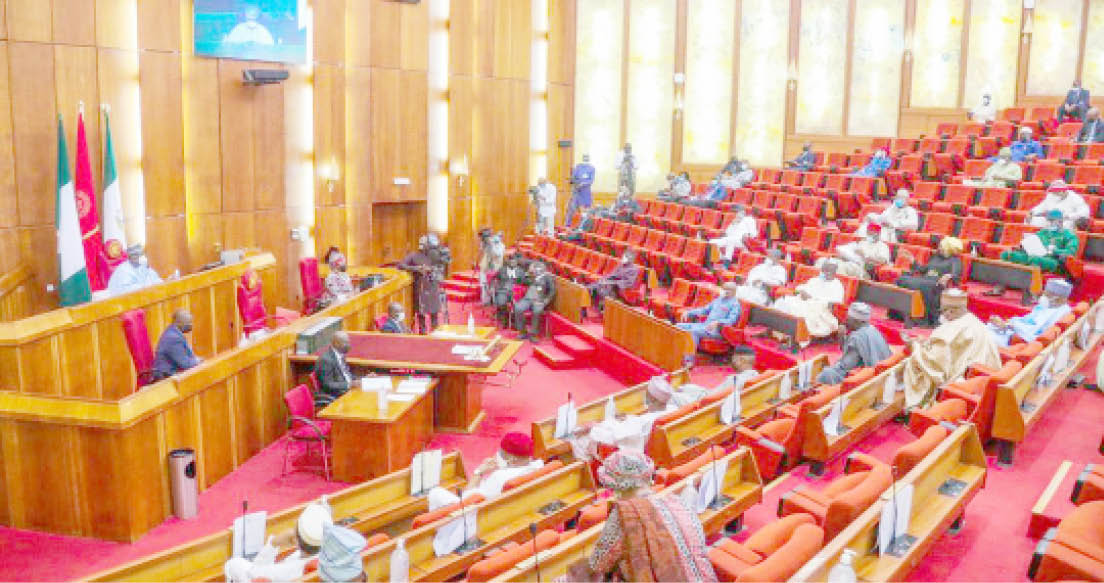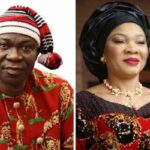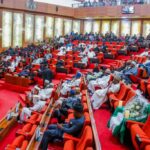Many political analysts are of the opinion that the biggest threat to democracy in Nigeria is not its peaceful protestors, insurgents, bandits or even separatists, but rather its legislators.
Having allocated themselves a disproportionate share of the nation’s budget, they “live large”, habitually fail to meet the stipulated number of sitting days, fail in oversight functions, fail to constrain executive unconstitutionalities, and always place their personal interests above those of their constituents.
- Behind the scenes of the resumed trial of Nnamdi Kanu
Court orders release of ‘BuhariMustGo’ worshippers, Sowore’s associates
The Senate recently voted in favour of a new Electoral Bill which goes totally against the grain of democracy. Quite appallingly, they seek to undermine the independence of the Independent National Electoral Commission (INEC) and place obstacles in the path of free and fair elections. The new bill establishes two additional electoral umpires, the National Communications Commission (NCC) and the National Assembly (NASS) itself. Reprehensibly, political office holders are granted powers to determine whether the results of an election, which they might have lost, should be released or withheld! Even worse, the notoriously rubber-stamp Senate which exhibits little independence, let alone impartiality,, is granted authority to undermine future elections simply by not convening to certify results.
In the US, former Vice President Mike Pence as Senate President stood his ground against his boss, President Trump, who pleaded with him not to certify election results. In a most patriotic and principled manner, Pence certified the result of an election which he knew he had lost. Nobody believes for one minute that any Nigerian Senate President would be that principled, or posses such integrity. As usual, even matters of overriding national importance could not deter routine absenteeism in the Senate chamber. There is no excuse for the 28 senators who were not present to vote on the bill. Legendary US Senator, patriot and war hero, John McCain, got off his death bed to cast his vote against his party’s plan to end Obamacare because, as he said, he was “burdened by conscience”.
In contrast, Nigerian senators are never burdened by any conscience which would make them act in the public interest. As beneficiaries of a defective, inefficient, opaque, outdated and corrupt system, there is clearly a consensus among senators from the ruling party to resist any improvement on processes which brought them to power in 2015 and kept them there in 2019. They selfishly and unpatriotically hamper the introduction of technology and processes which to their personal detriment would enhance free and fair elections.
Prior to the 2019 elections, INEC declared its technical capacity to eliminate results alteration by electronically transmitting results from all polling units. Not surprisingly, political actors quashed the idea immediately! Election integrity is all about result declaration, transmission and collation. Declaring results at polling booths and transmitting them electronically facilitate collation by all interested parties and allows losers to be confident that results were not altered during collation. NCC officials are doing their best to ridicule themselves by claiming that real-time transmission of results is not possible due to poor network coverage. That simply is not true, and INEC’s Director of Publicity and Voter Education said it is a “blatant lie”. Nigerians are left to wonder how come authorities claim to have sent N-Power payment alerts to recipients in every local government, and insist that every Nigerian must link their SIM card to their National Identity Number (NIN) to enable them “trace criminals nationwide”, yet when it comes to collating election results, there is suddenly no nationwide network? NCC officials who claim Nigeria’s network coverage is 50 per cent seem to have forgotten that in March, 2020, the Nigeria National Broadband Plan duly signed by both President Muhammadu Buhari and the Minister for Communications indicated that the nation had achieved 74 per cent coverage! Meanwhile the two mobile network providers assisting JAMB to conduct online examinations across Nigeria assure INEC that between them nationwide network coverage is virtually 100 per cent. This is neither here nor there.
The idea that poor or absent network coverage means people will be “disenfranchised” is balderdash, it has nothing to do with being denied the right to have your vote counted. Even in the USA there are areas not covered by GSM network, but that doesn’t prevent electronic transmission of results. Election officials simply go to the closest area with network coverage and transmit. The Nigeria Bar Association has raised serious objection to the provisions of the bill which subject INEC’s powers to conduct elections to the approval of the NCC and NASS, claiming that they are unconstitutional.
Part 1 of the Third Schedule of the 1999 Constitution stipulates INEC’s functions as to “organize, undertake and supervise all elections.” Their operations cannot be subject to the direction of any person or authority because they are supposed to carry out all functions independently, and free from external control and influence. The new electoral bill as passed by the Senate has been aptly described as “embarrassing shameful”. It’s a betrayal of people’s trust, and if assented to, will hinder the credibility of future elections. Not surprisingly the opposition parties have tagged it as the “conditionality for mass rigging in 2023”. As far as they and most other Nigerians are concerned it’s a blatant attempt to annex INEC by using the NCC.
The routinely poor turn-out during elections is sufficient evidence that Nigerians have lost faith in the system, and the Senate has now given them more reason to doubt election results. Increasingly Nigeria’s democracy appears to be metamorphosing from government of the people, by the people and for the people, towards government of politicians, by politicians and for politicians. In light of the widespread perception that the “honorable” members voted for politics and personal interest over democracy, the Senate President’s remark that the bill has “achieved what they set for themselves” was ill-considered. President Buhari is not eligible to contest in 2023, perhaps the best legacy he can leave the nation is to refuse to assent to the bill and cast his vote for democracy, unlike the senators who cast theirs against it.

 Join Daily Trust WhatsApp Community For Quick Access To News and Happenings Around You.
Join Daily Trust WhatsApp Community For Quick Access To News and Happenings Around You.


